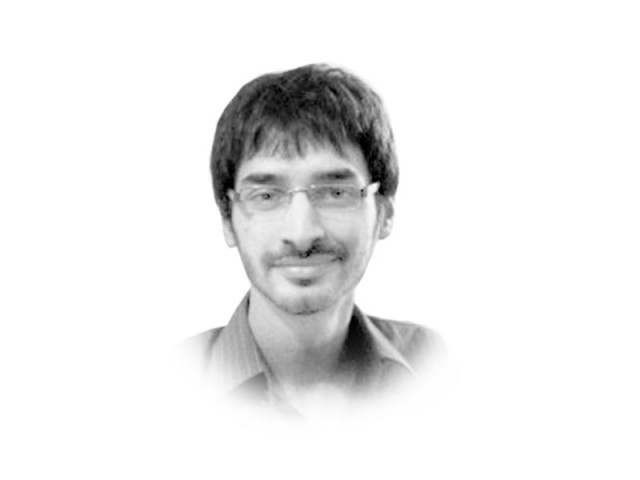We are successfully being held hostage
Make no mistake, our state is under very real threat and no individual or institution involved is safe.

The writer is Web Editor of The Express Tribune and tweets @Jhaque jahanzaib.haque@tribune.com.pk
Hanif is right in pointing out the logic is flawed, playing to the benefit of the militants and the continued disintegration of the state in the face of an enemy who truly, “believe in something”. What gets left out of his analysis was the very real role fear is playing in what, on the surface, seems to be clouded, delusional thinking and an absence of logic. I’m going to give our power players a little benefit of the doubt and assume not all of them are as clueless as they seem with regard to the direction they are pushing Pakistan with their calls for peace talks and condemnations of a terrorist’s death. Many of them know they are edging closer to a precipice, but are too afraid to turn around and face those prodding them forward.
They utter words that please militants to ensure their names, and the names of their extended families stay off hit lists. They speak out against the US and condemn drone strikes in the hopes that their words will stay the trigger-happy hands of the terrorists who have kidnapped their son, their nephew, their relative. They hold back on purpose, hoping to keep alive those of their rank captured from check posts, from raided prisons, during operations.
Through media reports, the public has been clued in to this strategy employed by the terrorists, but few can really understand the daily terror of knowing someone you love is being held in a terrorist camp — only Amna Taseer, Yousuf Raza Gilani and others facing this situation right now can really relate. Similarly, while the public is aware of the strategic holding and exchange of prisoners as a part of any war, most are unaware of the extent of the problem in the current war, or how deeply it could be impacting strategy. Bear in mind, this is just one of many terror tactics we tend to overlook in this debate.
Make no mistake, our state is under very real threat and no individual or institution involved is safe. I can vouch for this as a journalist. Without naming names, media houses and the journalists working for them live with fear on a daily basis, forced to self-censor, or worse, ordered to censor, retract or publish a counter-piece to whatever brought them on the radar. Promises have to be made to not cover a certain issue in a particular way, or in a particular context, or even with/without particular words.
In TV channels, everyone from the anchor down to the tickers desk may be told where the line is to be drawn, not as an editorial decision, but to ensure colleagues working out in the field or in vulnerable bureaus are not attacked.
While it is true that generally confusion reigns when it comes to Pakistan’s role in the war on terror, the role of fear — the terrorists’ real weapon — has to be included in any discussion of the current situation. Fear of death and personal injury. Fear of taking on an enemy, and losing. Fear of saying the wrong thing and getting killed for it. Fear of passing the wrong judgment in the wrong case. Fear is palpable in Pakistan; it can be felt across all pillars of the state. In such an environment, where those who are meant to provide you security, justice, governance and information are under constant attack, it requires no delusions or absence of logic to see why we are lionising our tormentors.
We are successfully being held hostage.
Published in The Express Tribune, November 20th, 2013.
Like Opinion & Editorial on Facebook, follow @ETOpEd on Twitter to receive all updates on all our daily pieces.













COMMENTS
Comments are moderated and generally will be posted if they are on-topic and not abusive.
For more information, please see our Comments FAQ